QuestionI am doing level 2 animal care and one of the modules is health and wellbeing/ welfare I have been set a number of scenarios Im stuck on one question:
One of the new mice recently welcomed to the centre is showing a lack of interest in her food but is still drinking as you would expect for her species
i need to know what the causes might be and what treatment would be best for it apart from the vets.
AnswerHi Allina,
I cannot answer your schoolwork question for you, but I can tell you where I would start, so that you can see how the critical thinking progresses through a diagnosis.
The first thing to do is always to ask questions. I am not sure if there is more information in your module, or if this is all you have been given, but I would ask an individual in this scenario in real life the following: Does the new mouse live with others currently in the same cage? Did she before? Are there male mice, rats, predators, or environmental triggers in the same room or area as her enclosure? How old is this new mouse? What sort of environment was she kept in before - was it a highly transient population, where new mice come and go very frequently?
Each of these questions applies to your diagnosis. Once you have all the data you believe you need, there are three areas to consider:
BEHAVIORAL - Behavioral is often overlooked when we are thinking disease. Behavioral encompasses the mouse's temperament, neurotic ticks, anxiety, social behavior between other mice such as submission or dominance or a preference to be alone, and of course her personal adjustment to a new situation. Questions to ask yourself include:
- Is her behavior within normal limits for a mouse in her situation?
- Is there something around her that could be inducing more stress than typical?
- How are her interactions with other mice in her enclosure?
- Did she eat well when she first arrived, and was she harassed at all by her cagemates?
- When different foods are offered, does she show any different responses?
MEDICAL - Medical is not something to be overlooked. If you can't find any reason for her refusal of food (or whatever problem you are examining), it's time to look at her physically. Like any prey animal, mice tend to hide their symptoms, but like any of us, an ill mouse does not typically feel up to eating. Questions to ask include:
- How are her coat, eyes, mucous membranes, and ears?
- How is her weight - is her tail still plump? Is she hunching?
- How is her breathing - are there any clicks that may indicate a respiratory problem?
- When she moves, does she have adequate mobility, smooth joint function, and appropriate energy?
- Again, did she eat well upon arrival? Did she arrive from a situation where disease may be likely?
- Does she have any lumps, bumps, spots of hair loss like from bites, scabs, or blood?
- Does her feces appear normal, or is it darker, lighter, runny, or discolored?
HUMAN ERROR - Lastly, if you can find no other reason that is likely for causing her lowered appetite or eating habits, look at your own behavior. Mice take time to adjust to a new location like any animal does, are you bothering her? Is she in an area with too much noise, including ultrasonic noises like those made by monitors, or too much activity? Are there any chemicals or hazards in the area?
This sort of linear thinking is invaluable in making a diagnosis. Hopefully it will help you with your modules and your coursework. Let me know if I can be of any further assistance!
-Tam

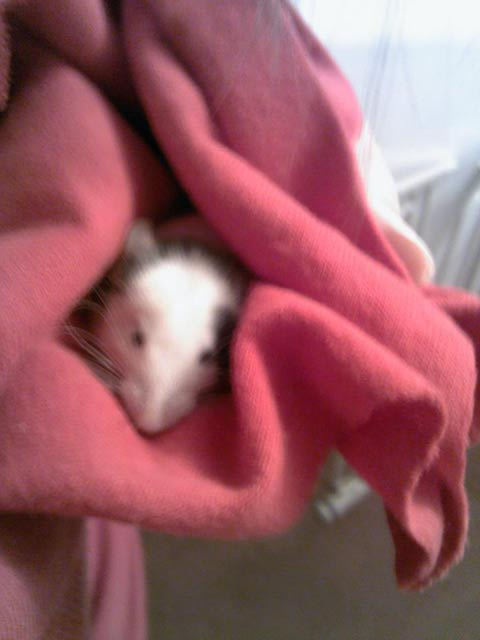 How to care for very sick mouse
QuestionMy lil Rum
QUESTION: I have tried to fin
How to care for very sick mouse
QuestionMy lil Rum
QUESTION: I have tried to fin
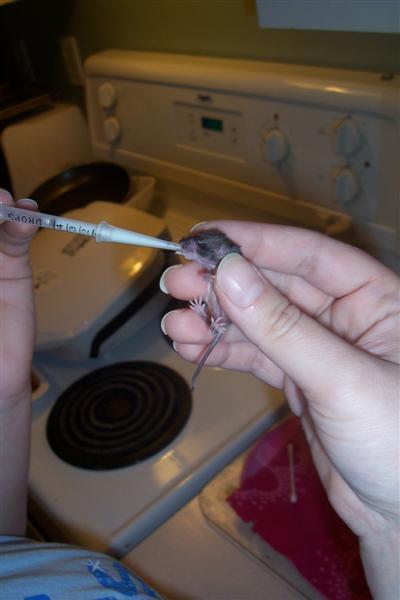 underweight wild baby mouse
Question
baby
a person found a baby mouse in their shed
underweight wild baby mouse
Question
baby
a person found a baby mouse in their shed
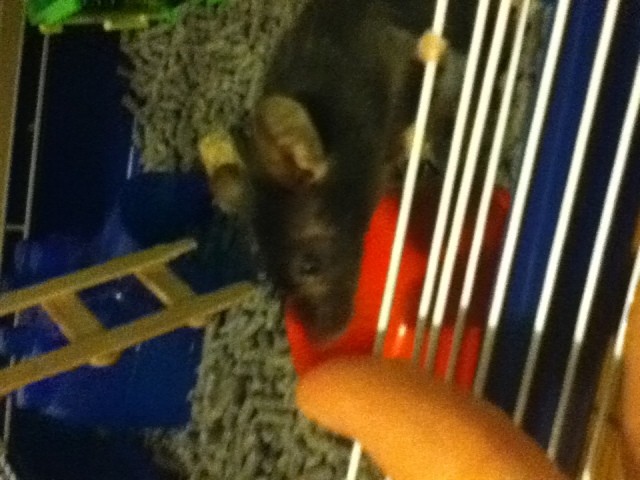 Mouse eye infection(?)
Question
Lexie
One of my three female mice has develop
Mouse eye infection(?)
Question
Lexie
One of my three female mice has develop
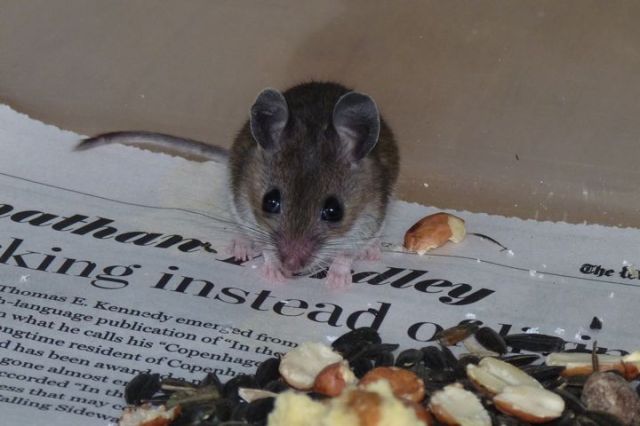 Advice about wild mouse intruders
Question
Hi Natasha,
You have helped us so much alrea
Advice about wild mouse intruders
Question
Hi Natasha,
You have helped us so much alrea
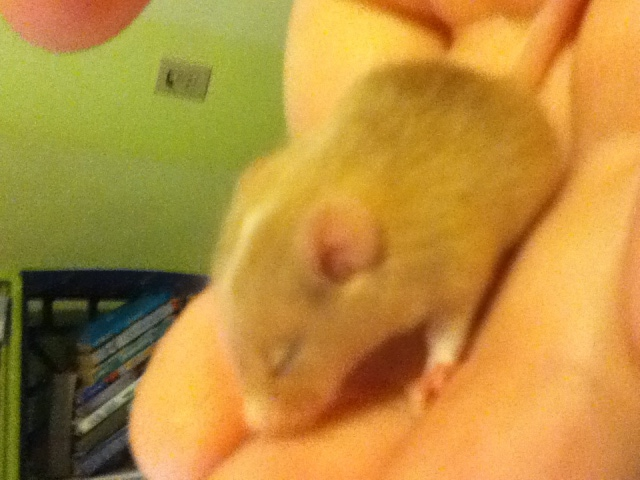 abandoned baby mouse died of a seizure
QuestionPrecious
QUESTION: Hi Natasha,
I really
abandoned baby mouse died of a seizure
QuestionPrecious
QUESTION: Hi Natasha,
I really